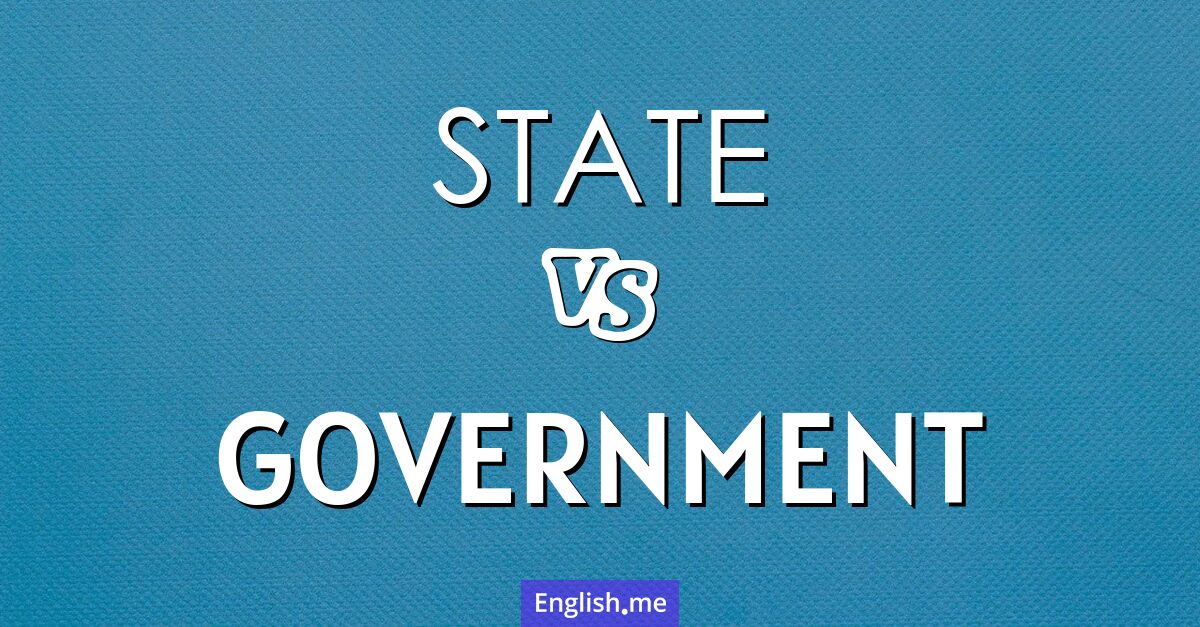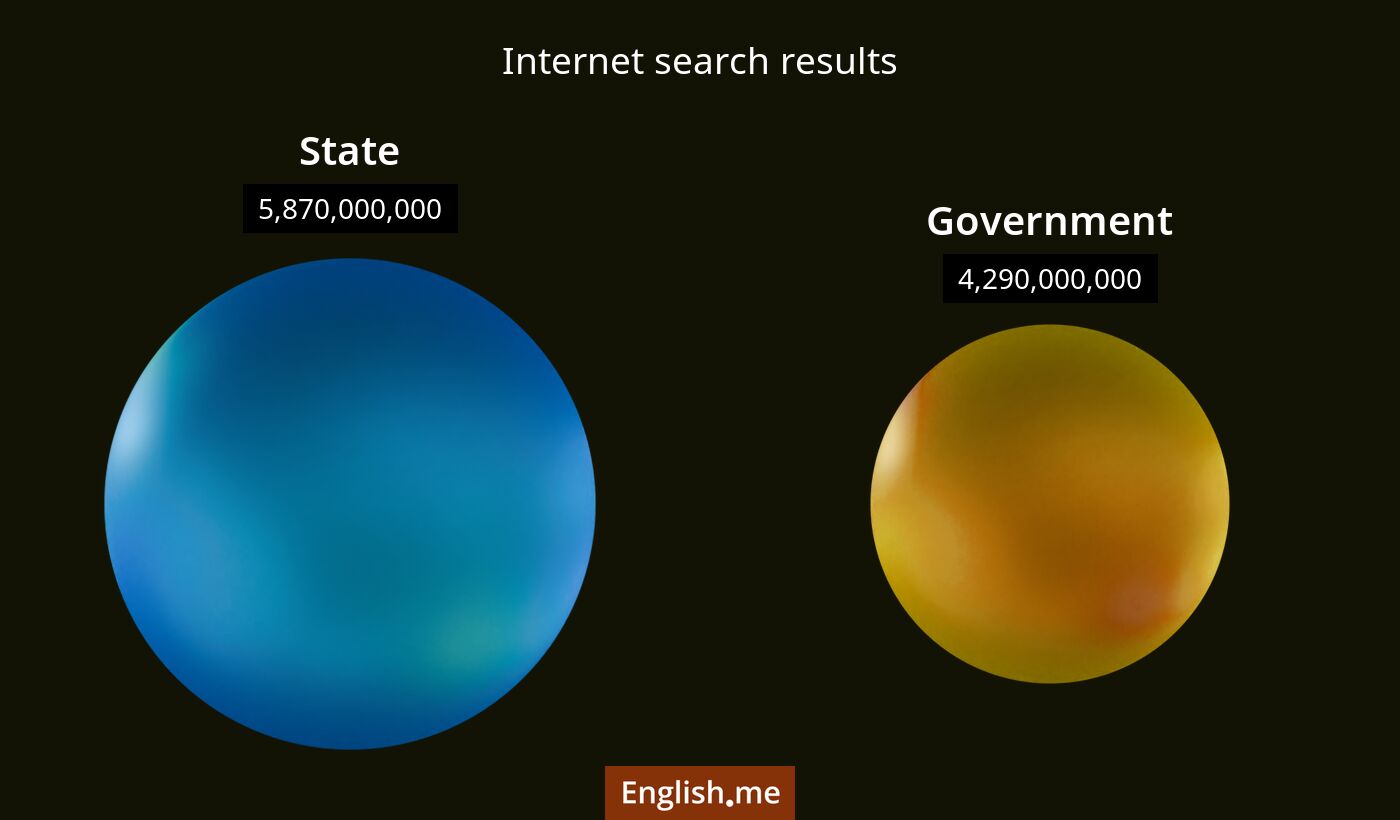Exploring the link between "state" and "government"
Reviewed and edited by  Anwar Kareem 22/10/2024, 12:22
Anwar Kareem 22/10/2024, 12:22
English.me team member

 What is similar?
What is similar?
Both "state" and "government" relate to political and organizational structures that exercise control and authority over a defined territory or group of people.
 What is different?
What is different?
"State" often refers to a political entity with defined borders and sovereignty, which includes the people, territory, and institution. "Government", on the other hand, refers specifically to the system or group of people governing an organized community, often a state. The government is one element of the state, responsible for implementing and enforcing laws.
 Which one is more common?
Which one is more common?

 Examples of usage
Examples of usage
State- The state of California has a diverse economy.
- In international relations, a state is defined by its sovereignty and recognized borders.
- The state is responsible for public education and infrastructure.
- The government passed a new healthcare reform bill.
- Citizens expect their government to maintain national security.
- The government was overthrown after the revolution.

 English
English español
español française
française italiano
italiano deutsche
deutsche 日本語
日本語 polski
polski česky
česky svenska
svenska Türkçe
Türkçe Nederlands
Nederlands